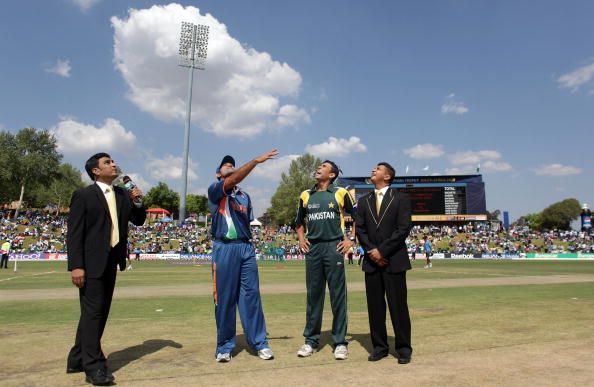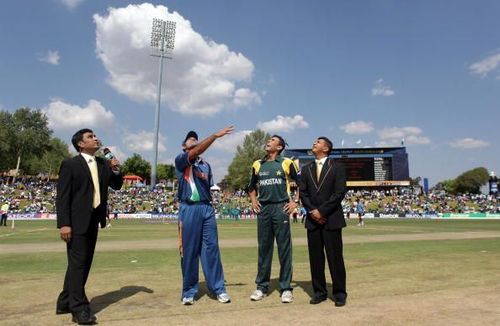
Why the persistent attacks on Sanjay Manjrekar speak badly of Indian cricket culture

Ravindra Jadeja has torn the lid off a half-open can of worms by attacking Sanjay Manjrekar, the cricketer-turned-controversial-commentator on Wednesday by accusing him of having verbal diarrhea.
The can was already half-open because Manjrekar has been the favorite punching bag amongst established commentators for a while now, if not for members of the cricket fraternity, then most certainly for the vociferous Indian cricket fans, who have called him all kinds of names and joked about his acumen on social media, for a while now.
Manjrekar, so far, has maintained a dignified silence in response to Jadeja's tweet and moved on with his duties as a commentator in the World Cup. So what caused Jadeja's ire?
Well, Manjrekar, reportedly referred to him as a bits-and -pieces cricketer when asked about the allrounder's selection prospects into the final eleven. One can understand the reasons behind Jadeja's anger, he was a top test bowler for some time in the past after all and Manjrekar was harsh in his opinion, but not the mode of his dissent.
Why Manjrekar?
Lest we forget, Manjrekar has already been attacked, albeit obliquely, by a former legend of the game, Sourav Ganguly, on the same social media platform. Again, like Jadeja, the aim of the attack was both his supposed comments and his relatively inferior record as a cricketer compared to the other two.
While Ganguly remains one of India's best limited-overs' batsmen and a celebrated captain, Jadeja has excelled at all forms of the game and remains a vital cog in the Indian set-up despite not playing. Compared to them, Manjrekar's record is feeble.
He has just one century in ODIs at a poor strike-rate of 64.3, but attained more success as a test batsman with four centuries to his credit. He was part of a team that traveled poorly, was stung by match-fixing (in retrospect) and wasn't given the revolutionary breath of fresh air instilled by Ganguly himself.
Yet, as a commentator, Manjrekar has had a longer, and more successful career. He has managed to survive by dint of his straight-talking abilities, his approach of not caring two hoots for the reputation of a player while critiquing him, something hardly found in most commentators nowadays, and in the process he has stepped on the toes of big personalities.
The issue
Therein lies the problem. It is absolutely alright for Ganguly, who was just the victim of harmless banter, and Jadeja to respond to Manjrekar's words but not in the fashion they have done so. By attacking him for his cricketing skills in an insulting tone (provided Ganguly was indeed taking a dig at Manjrekar), they have attacked the very foundations of critiquing. The best film critics in the world are not the greatest filmmakers, the best food critics, not the best chefs; the ability to analyse well, or even competently, doesn't always necessitate a mastery over the form.
Culture of disrespect
By all means, Jadeja has the freedom of speech to logically counter Manjrekar's words if he feels hard done by, but not by getting personal. It speaks of a vacuum in critical thinking and inflated egos that is inherent of the current clime in Indian cricket.
Despite the on-field success of recent Indian teams, criticism is not taken well, both by fans and more alarmingly, cricketers. Harsha Bhogle has also been in the receiving end of the same issue and Akash Chopra has also faced the ridicule of fans for being an expert despite having an average international record.
Again, to reiterate, the best coaches in the world (and thus the best analysts), were not top performers in the sport. Look no further than football coaches Sir Alex Ferguson and Jose Mourinho if one wants examples. Thus, Manjrekar should not have been attacked on the grounds he was. Counter critics with logic and not insults, should be the underlying message, that will only benefit critical thinking in Indian cricket in the long run.
Note: The views of the author do not necessarily reflect the views of Sportskeeda.